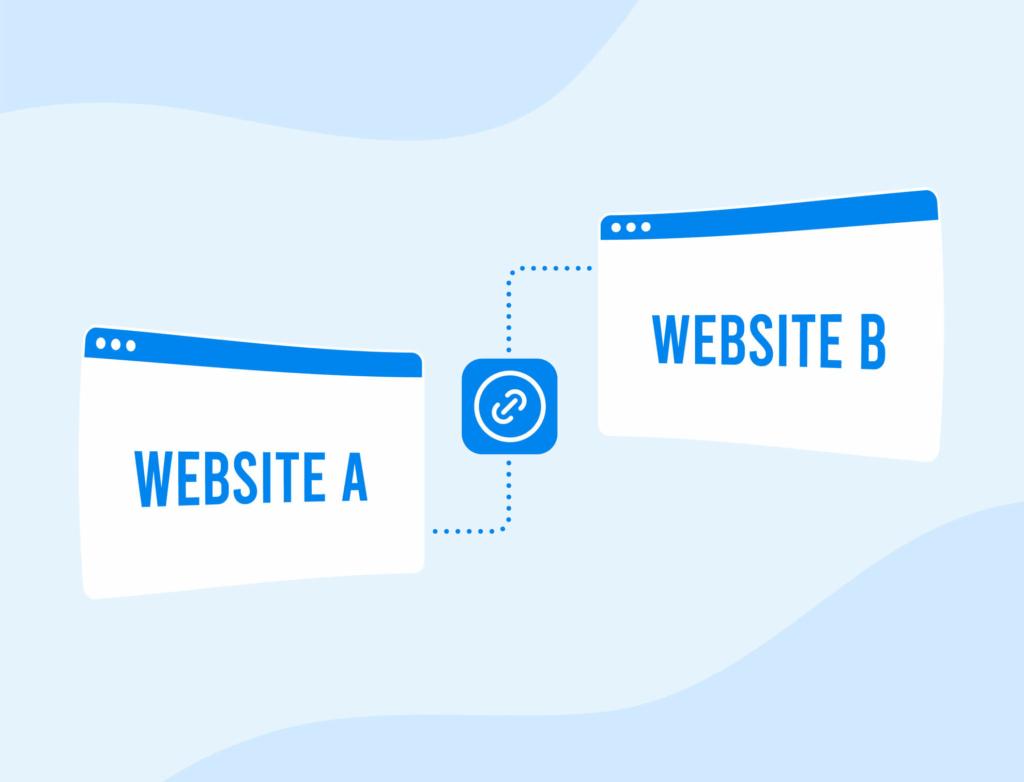Today, if a person wants to hire a lawyer, all they do is a simple Google search.
Imagine a car accident victim who wants to get a lawyer. They’d likely search for “the best personal injury lawyer in Boston.” This is where the whole topic of Search Engine Optimization (SEO) for lawyers comes into the picture.
If a law firm or an attorney has a website with fantastic SEO, they’d appear in Google’s top rankings. So, who gets the massive share of the clients online? The person who knows about legal SEO.
Hence, if you want to be on Google’s top ranking, you must pay attention to your website’s SEO performance. In this article, we will explore why it’s crucial to get the SEO game right, and the best practices for lawyers to rank the highest on search engine results pages.
What Is SEO?
SEO refers to improving your site’s quality, performance, and user experience to rank high on search engines.

Google has some parameters based on which it judges whether a website is good. This includes:
- Content (the written stuff that goes into your site)
- Backlinks (how many sites vouch for the credibility of your website)
- Technical SEO (steps you need to take to make your site understandable to web crawlers)
- UX (how fun and responsive your website is to the users)
Nothing can stop you from being on the top if you get these elements down. However, you must check quite a few boxes to get these right. It can include writing great content, getting authoritative websites to vouch for you, maintaining good interactions with Google, and developing a stunning yet functional website.
Importantly, it takes a few months for SEO methods to show results, but it will significantly improve your website’s position in search results over time. Even if you stop SEO measures in the future, you will continue attracting organic traffic for free. Simply, if you know the basics of attorney SEO, you can develop a solid lead funnel from search engines.
Why Is SEO Important for Lawyers?
SEO is especially important for law firms and attorney websites because, as per a survey by National Law Review [1], about 96% of people get legal advice from the internet. All their legal queries are run by Google before anywhere else. To connect with these prospective clients, you need to get enough eyeballs. That can only happen if you nail the SEO game.
To verify this, let’s look at this data:

The above image shows Google search data for the keyword “lawyer.” The global volume refers to the average monthly searches for this term, also known as Search Volume (SV).
As you can see, there is a global SV of 281K, meaning people worldwide search the internet for “lawyer” an average of 281,000 times per month.
More specifically, it can be further broken down as follows:
- 107,000 searches come from the United States,
- 35,000 from India,
- 14,000 from the Philippines,
- 9,500 from South Africa.
An SEO company can help optimize your law firm website to make the most of this incline. Aiming to organically rank your website on top is the best way to get increasingly high ROIs yearly without the rising cost of law firm marketing ads.
Here are some additional benefits of it:
#1 Helps Topple the Competition
By outranking your competitors on a search engine like Google, you can capture a larger share of organic traffic and attract clients who might have otherwise chosen a different firm.
#2 Brings in Targeted Traffic
Unlike traditional advertising methods that cast a wide net, SEO enables you to reach potential clients who are actively seeking legal services. It’s like having a steady stream of pre-qualified leads knocking on your door. This is one of the beauties of bringing in organic traffic.
#3 Establishes Authority
Trust is everything in the legal field, so your potential clients would want to know if they’re hiring a reliable and reputable attorney who can fulfill their interests. A solid SEO strategy can help stamp your authority and credibility online and position you as the “preferred” choice.
10 Practices You Must Follow to Improve Your Rankings
Improving your SEO rankings involves a multifaceted approach. Given below are 10 steps that you should follow to enhance your website’s visibility and searchability, which in turn can help you build your online presence.
1. Write High-quality Content
The most fundamental thing you need to get right is your content. By this, we don’t mean just keyword-optimized content. Rather, content that solves a problem or addresses the pain points of the reader.
Google prioritizes websites with the latest, value-rich, informative, and reader-friendly material, so it’s important to keep that in mind before publishing that blog post.

Here are some ways you can publish good content and appease Google:
#1 Identify Content Gaps
Content gaps can refer to the opportunities you’re not utilizing. Start by asking yourself questions like:
- What are my competitors writing about that I am not?
- What’s the latest buzz surrounding my niche?
- Am I missing out on high-intent keywords?
This is your gap analysis in action. Once you pinpoint the areas you’re lacking, you’ll be able to leverage them to your advantage.
#2 Aim to Solve a Problem
More often than not, people land on your website to solve a specific problem. And if you’re not sending them back with a solution, you’re doing something wrong. Aim to fix their issues and talk about their “pain points” so they know they’ve landed in the right place. For instance, if someone needs mandamus litigation attorneys to compel government action, clearly outline how your firm can assist with this complex legal process and offer tailored guidance.
#3 Be Clear, Concise, and Thorough
Writing content just for the sake of filling up the website has never helped anybody. Next time you’re writing some new material, aim to be clear, to the point, and thorough. You want your ideal visitor to land on your website, stay until the end, and exit with the information they sought.
Remember, your competition is similar lawyers like you who are vying for the attention of the same set of clients. What makes you better than the rest of them? Perhaps your knowledge and website content are the best places to flaunt it.
2. Perform Keyword Research
Keywords are words or phrases a user will likely type in the Google search engine. The below data shows the average monthly search volume for some keywords related to attorneys, lawyers, and legal services.

Some of these searches indicate that people are looking for specific types of legal services, including divorce lawyers and car accident lawyers. For instance, the above data from Google shows us that ‘lawyers near me’ has an average monthly SV of 88,000.
By creating a list of the most searched keywords in your legal niche, you can rank at the top for specific keywords. One of the best and “free” ways to know what users are searching for is to use Google Adwords.
Adwords is a nifty in-house keyword research tool that generates a list of highly searched terms and their SV and difficulty. You can pick the most suitable keywords for your website and focus on the least competitive yet highly searched phrases. Targeting and spreading these keywords throughout your website will boost your SEO.
If you wish to take it a notch higher, you can opt for advanced SEO tools like Semrush, Ahrefs, Surfer Seo, and more. However, these are all paid tools.
3. Build Backlinks
Backlinking happens when another website adds a link to your site. It means they find your content credible enough to refer their audience to you. The more websites backlink to you, the more authoritative Google would find you. You can get incoming links if you publish good content and pitch high-value websites correctly.

One thing to remember is – quality over quantity. Getting several low-value websites to link to you is not the hack that would win Google’s attention. It’s about targeting a few highly credible websites.
Some significant sources of powerful backlinks are Forbes, Economic Times, Harvard Business Review, Harvard Law Review, The Guardian, and more. But Google finds umpteen sites credible, so you have a vast playground to work in.
Create amazing content and get the validation of credible websites to rank higher. You can also get law firm link building from websites and social media platforms like Facebook, Twitter, LinkedIn, Google Business Profile listings, and reviews dropped on third-party apps. All these are valuable in Google’s books, so be proactive in scoring backlinks.
4. Focus on Technical SEO
Technical SEO refers to those aspects of SEO that make your website’s content recognizable to web crawlers. Google can’t read your content like a human can, but there are certain technical elements that it can read, based on which it can determine your site’s authenticity.

Some technical SEO elements are header tags, meta tags, alt texts, image descriptions, site architecture, URL structure, and more. These are the primary SEO areas you must take care of to be on Google’s map.
If you use WordPress or Wix as your content management platform, you can utilize the technical SEO tips they provide. There are also SEO plugins, such as Yoast, that give you insightful prompts to improve your technical SEO strategy and perform well on search engines.
5. Maintain a User-friendly Interface
One of the most crucial elements of any website is its User Experience (UX). This is a testament to how easy it is for your users to navigate your website, find the page they need, and have a fantastic experience while sifting through your site.

This includes a visually appealing site layout, faster loading times, little to no pop-ups or intrusive interstitials, and highly responsive pages and buttons. Remember, your website may have the best content on the internet, but it won’t be worth anything if your user is constantly frustrated about the website’s interface.
Here’s a table that states some of the best practices to improve UX:
| # | Tip |
| 1 | Simplify navigation |
| 2 | Consider accessibility guidelines |
| 3 | Streamline forms and input fields |
| 4 | Implement user-centric design |
| 5 | Enable quick access to key features |
| 6 | Offer personalization options |
| 7 | Ensure consistency across the website |
| 8 | Use simple and concise language |
| 9 | Monitor and test continuously |
| 10 | Use white space effectively |
6. Ensure a Mobile-Friendly Website
Most websites are developed for desktops but are used on mobiles more. Think about it: if a person wants to get a lawyer after getting into a car accident, there is a slim chance they would first find their laptop and then log in to get an attorney’s number. They’d most likely punch in a search on their mobile’s browser.

Importantly, both desktop and mobile require different site architectures. Hence, while developing your website, pay attention to how it looks on mobile devices. If you have any pop-ups or overlays, are they interrupting the flow of the user? And are all the text boxes and images in alignment, both on desktop and mobile?
This accessibility is vital because a mobile-friendly website reflects positively on your law firm’s professionalism and reliability, which can influence your potential client’s trust and decision-making.
7. Leverage Social Media
Social media is an underrated and useful tool for SEO. Apart from getting your website to rank on Google, you can also have your law firm’s social handles, like Twitter or LinkedIn, rank on the search engine, making your company look even more credible. This can be done using keywords in your social media posts.

Using hashtags or keywords in your captions can help Google recognize your social media presence and push high-quality content further up. Plus, including your social media handles on your website with simple buttons on every page could also help make a sleek impression. It’s best to leverage social media as much as possible to improve your ranking.
Here are some popular platforms that are perfect for lawyers:
- LinkedIn: This is a professional networking channel where lawyers can showcase their expertise, connect with other professionals, and share insights on legal matters.
- Twitter: This allows attorneys to share quick updates and participate in relevant legal discussions using hashtags.
- Facebook: Considered a “light-hearted” version of LinkedIn, this platform allows lawyers to share longer-form content, such as blog posts and videos, and engage with a broader audience through comments.
Once you have an account on these social media channels, you need to keep track of metrics like engagement, follower growth, traffic to your website, conversion rates, and brand sentiment. Keeping track of these key metrics will allow you to market your services and establish thought leadership, besides the perk of increasing your clientele.
8. Implement Schema Markup
This highly underrated SEO tool is bound to make Google very happy with your website. Schema markup [2] is structured data in a code developed to communicate the meaning of your pages and how users see your website’s elements. In simpler words, it tells Google everything about your website in its own language.

You can include different markups for the search engine to understand your business and subsequently communicate the same with your audience. These include product, review, article, course, local business, and location markups. These are communicated using coding methods such as JSON-LD (Javascript Object Notation for Linked Objects), Microdata, and RDFa.
Since it’s highly technical, not all law firms use it. However, if you’re tying up with an SEO company for lawyers, you could master it and increase your chances of ranking at the top. To this end, NUOPTIMA’s off-page SEO services can help you implement schema markup with ease.
9. Improve Website Speed
You could have the best content, the most stunning design, all the right keywords, and an exceptional backlinking record, but it’s no good if your website fails the speed test.
In fact, as stated by Google [3], the chances of visitors bouncing from your page increase by 32% if it takes up to three seconds to load. Some websites can load as quickly as one second, but mostly, it takes about two seconds for a page to load fully. Anything more than that, and you run the risk of a high bounce rate.

You can test your site’s speed on platforms like Google PageSpeed Insights, Google Analytics Site Speed, Pingdom, and WebPageTest, among many more. If the loading speed is more than two seconds, there are several things you can do to improve your site’s performance, such as:
- Optimize images
- Enable browser caching
- Minimize the number of HTTP requests
- Utilize content delivery network (CDN)
- Reduce server response time
These are only a few things you can do, among many others, to improve your rankings by speeding up your site.
10. Monitor and Analyze
Google’s landscape is ever-changing, and so are its SEO policies. They keep updating the definition of SEO-friendly content, so you must watch for the latest updates on top of the trends.
Some of the trends include:
| Featured snippets | A short excerpt of text displayed at the top of Google’s search results, designed to answer a searcher’s query quickly. |
| Google BERT model | A neural network-based technique for natural language processing pre-training that helps Google understand the context of words in search queries. |
| Local SEO Services | Optimization strategies focused on improving a business’s visibility in local search results. |
| E-A-T concept | Stands for Expertise, Authoritativeness, and Trustworthiness, which are factors Google uses to evaluate the quality of a webpage. |
| Voice search SEO | Optimization for voice search and virtual assistants, considering the conversational nature and long-tail keywords in spoken queries. |

Moreover, you must also monitor how the changes you’re making are performing on the ground. Are the SEO practices you’re following getting you the results you need? If not, you must tweak your strategy to achieve your desired output.
Here’s a table that lists some of the SEO metrics you need to analyze and monitor to identify if your strategy is paying off:
| Organic Traffic | The number of visitors who arrive on your website through search engine results. |
| Keyword Rankings | The position where your target keywords appear in search engine results pages. |
| Backlink Profile | Quality and quantity of sources linking back to your website, influencing authority and trustworthiness. |
| Bounce Rate | The percentage of users who exit from your website after visiting only one page. |
| Click-Through Rate (CTR) | The percentage of users who click on your website’s link compared to the total number of users who see the link. |
| Page Load Time | The time it takes for your website to display its content fully. |
| Indexed Pages | The number of pages on your website that are indexed by search engines. |
Why Should You Hire an SEO Agency?
SEO is an excellent investment for a lawyer, solicitor, or law firm. However, it’s no secret that getting it right requires expertise, hard work, and time to implement. Many strands of law and various legal services are available, which may impact your chances of getting seen on the first page of search results.
Fortunately, our expert team at NUOPTIMA has worked with many law firms for years. With our collective experience and specialized SEO services, we have helped various attorneys get on the first page of Google.
Simply put, we know how to tailor your site to specifically implement SEO for lawyers and attract the right clients to your law firm. When creating a bespoke strategy, we also understand the importance of usability and client experience, so we follow a similar ethos to that of fellow SEO expert Ruth Everett:
“It’s important to look beyond rankings and rather ensure a website is usable for everyone.” – Ruth Everett, Technical SEO Analyst at DeepCrawl
Here are just a few methods we use to improve the Google rankings for your website:
- Arrange links to be placed on reputable legal websites.
- Curate SEO-optimized content to help your website rank for more keywords in your niche.
- Evaluate and optimize existing pages to comply with Google’s regulations and best practices.
- Create relevant pages to improve and increase your website’s organic traffic.
Search engine optimization can provide outstanding results when an SEO specialist analyzes, optimizes, and improves your site. NUOPTIMA’s SEO team is well-versed in helping your website achieve exceptional results. Book a call for free to explore how SEO can achieve incredible results for your website and business.
Closing Thoughts
SEO for lawyers can be tricky if you know very little about it. The steps in this post will get you closer to that much-prized first spot on the search engine results page. Most of it is about making your website easy to find and providing valuable material to your potential clients. If you have the right strategies in place, your website should climb the search rankings in no time, making it easier for people to find you when they need legal help.
FAQ
SEO for lawyers involves optimizing online presence to move up in search engine results and rank for relevant keywords. This practice can include strategies like building quality backlinks, creating content, and performing local SEO to attract potential clients searching for legal services.
When done right, SEO can be highly effective for law firms, as they can improve their online visibility, increase traffic from search engines, and generate quality leads seeking legal services – all by implementing the correct SEO strategies.
Yes, local SEO is essential for law firms, especially those focusing on serving a local clientele, as it ensures prominent visibility in search results for legal services within their geographic area. This targeted visibility attracts potential clients actively searching for legal assistance nearby, significantly increasing relevant website traffic and enhancing conversion opportunities.
SEO agencies can be worth the money for law firms, particularly those lacking the expertise or resources to manage SEO in-house. To this end, an expert agency can provide resources and ongoing support to improve the firm’s online presence, increase visibility, and attract more clients through organic search. However, choosing a reliable SEO agency with a proven track record of success is vital.



